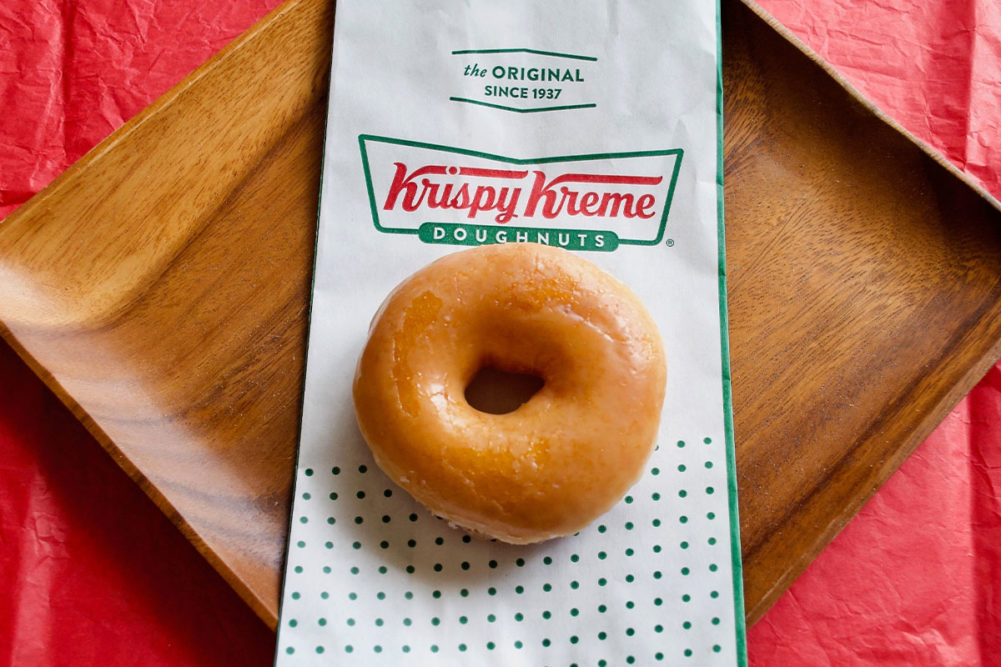CHARLOTTE, NC. — Giving consumers more opportunities to try its specialty donuts, coupled with more targeted marketing efforts, helped drive record e-commerce results at Krispy Kreme, Inc. The Charlotte-based chain known for its donuts also benefited from an expanded radius of warm cookie delivery for its Insomnia cookie concept.
The aforementioned efforts led to a 23% increase in e-commerce revenue at Krispy Kreme, Inc. in the first quarter ended April 2. The company also experienced a 220-basis-point increase in sales mix of e-commerce to 19.6% of retail sales.
“This was our strongest quarter ever in e-commerce, both in revenue and percent of retail sales, even when you compare that to the height of the pandemic,” Michael J. Tattersfield, president and chief executive officer, said during a May 11 conference call with investors. “We continue to see significant opportunity to grow in this channel.”
Joshua Charlesworth, chief financial officer, elaborated on the strength in e-commerce, saying Krispy Kreme has been making improvements to the web and app experience to make it easier to use.
“It sounds obvious, but on these big event days, people want Valentine's donuts, St. Patrick’s Day donuts, we've really focused on e-commerce because a lot of people are ordering well in advance,” he said. “They want to be part of that celebratory occasion and guarantee their donuts.”
Despite the success in its e-commerce business during the quarter, Krispy Kreme sustained a loss of $301,000 in the first quarter ended April 2, which compared with net income of $4 million, equal to 2¢ per share on the common stock, in the same quarter last year. GAAP net income in the quarter was $1.6 million, down sharply from $6.5 million in the same period a year ago. The most recent quarter included a $13.4 million charge related to the exit of the company’s branded sweet treats business that was largely non-cash, partially offset by a $9.7 million gain on a sale leaseback.
During the call, Mr. Tattersfield said Krispy Kreme donated much of its remaining branded sweet treats donut inventory to food banks across the United States.
Net sales increased more than 12% to $418.95 million from $372.53 million.
With the discontinuation of its branded sweet treats business, Krispy Kreme is fully focused on expanding its fresh business into new channels such as quick-service restaurants, club and drugstores, Mr. Tattersfield said. Two of the company’s new customers are Albertsons and Target.
In the case of Target, Krispy Kreme is bringing its fresh and prepacked donuts to the retailer for display in what Mr. Charlesworth described as “bigger, more premium merchandising units.” He said Target has shown an interest in presenting the Krispy Kreme brand in a different way, specifically highlighting it as “a premium differentiated offering.”
Mr. Charlesworth said the test with Target is currently taking place in about 20 stores in the Dallas area.





